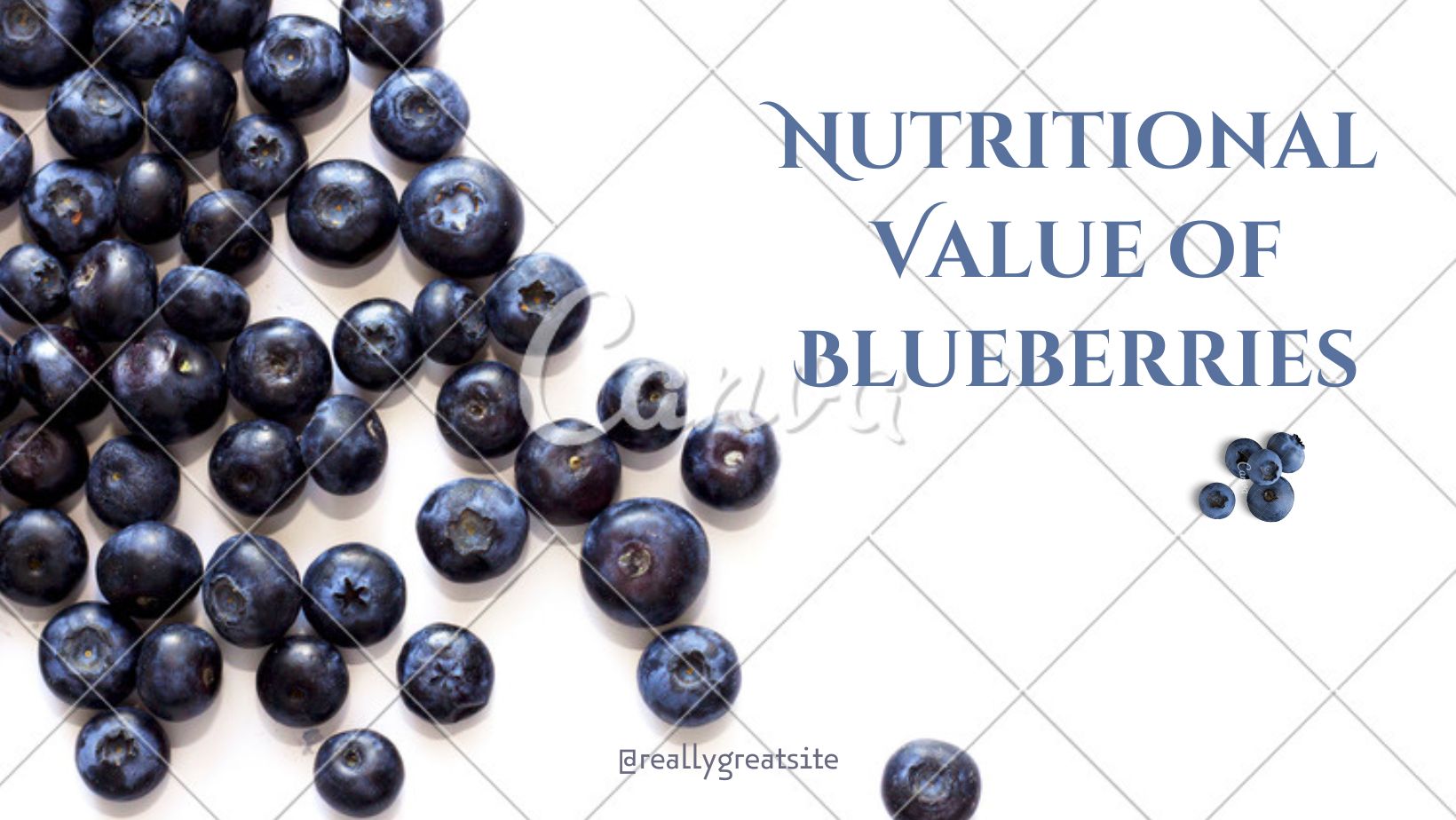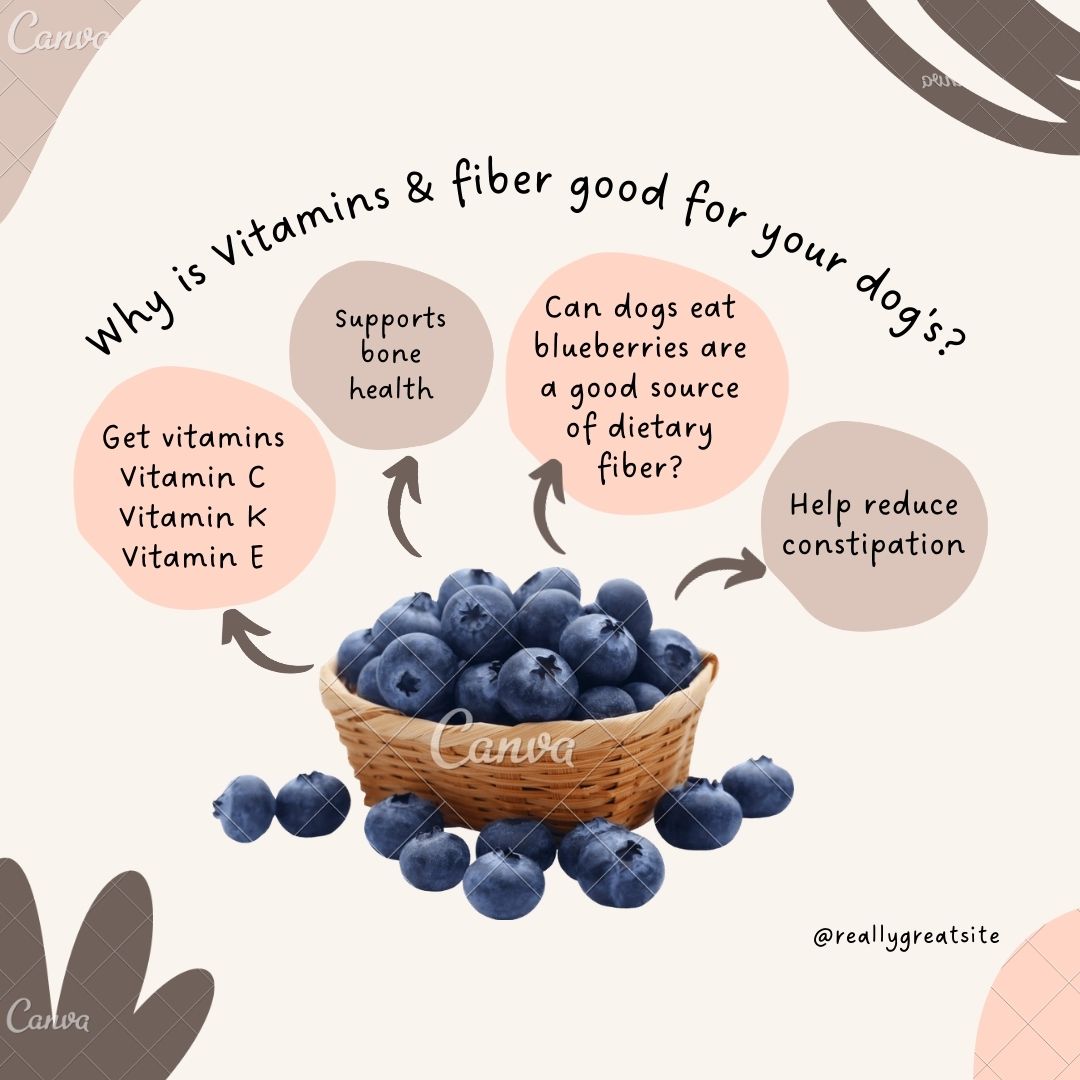But before we start sharing these little blue wonders with our furry friends, it’s important to ask: Can dogs eat blueberries?In this blog post, we delve deeper into the world of dog nutrition to explore the interesting question of whether blueberries are a ‘good berry’ option for our beloved pets.
While blueberries have earned a reputation as a superfood for humans due to their antioxidant and health benefits, we’ll uncover whether these benefits extend to our canine companions as well.
Join us as we navigate through the potential benefits, any associated risks and expert insight that will help us make an informed decision about including blueberries in our dogs’ diets.
So, grab yourself a handful of blueberries and embark on a journey to uncover the truth behind this question: can dogs eat blueberries? Your dog’s well-being is our top priority, and by the end of this post, you’ll be armed with the knowledge you need to make the best choices for your furry friend’s nutritional needs.
Can Dogs Eat Blueberries? – Video Tutorial For You
Blueberries are commonly regarded as suitable for canine consumption in controlled amounts.They are a nutrient-rich fruit that contains vitamins, minerals, antioxidants, and dietary fiber. Many of the nutrients found in blueberries can provide potential health benefits for dogs, just as they do for humans.
Introduction to feeding blueberries to dogs:
In this section, you want to provide a brief overview of the main topic of your blog post, which is the idea of including blueberries in a dog’s diet. You can start by mentioning that many dog owners are curious about whether blueberries are safe and beneficial for their furry companions. You could also briefly discuss the trend of adding human foods to pet diets and how blueberries have gained attention as a potentially healthy treat.
Why introduce the topic:
Explain why it is important for dog owners to consider the idea of feeding blueberries to their pets. You can tell that pet owners are becoming increasingly nutritionally conscious of their dogs and are seeking natural and nutritious treatment options. Highlight the intent of your blog post to provide accurate and balanced information about the safety and potential benefits of feeding blueberries to dogs.

Tone setting:
Choose a tone for this introduction that will appeal to your audience. Encouraging readers to continue reading the post can be informative, friendly or even slightly interesting. You might consider using a relatable anecdote or question to keep readers engaged from the start.
Transition to key points:
At the end of this introduction, briefly outline the main points you will cover in the blog post. Mention that you will discuss the nutritional value of blueberries, potential benefits, safety considerations, how to incorporate blueberries into a dog’s diet, and the importance of consulting a veterinarian. It provides readers with a roadmap of what to expect in the rest of the article.
Remember, the goal of this introduction is to capture the readers’ attention and to establish context for the information you’ll share in the rest of the blog post. It is the starting point that sets the direction for the material that follows.
Mention the increasing interest in incorporating human foods into pet diets.
- Humanization of Pets: Pets are increasingly seen as beloved members of the family rather than mere animals. This change in perspective has led to a tendency to treat them in ways that reflect human care, including diet.
- Nutritional Awareness: With greater access to information about nutrition and health, pet owners are becoming more aware of the nutritional content of the foods they feed their pets. They look for foods that are rich in vitamins, minerals and antioxidants.
- Natural and organic trends: Many people are adopting a natural and organic diet for themselves, and this mindset is extending to their pets as well. They believe that the same principles of health apply to both humans and animals.
- Limited Ingredient Diets: Some pets have sensitivities or allergies to specific ingredients commonly found in commercial pet food. As a result, pet owners are looking for alternative, whole food options and are often turning to human foods such as fruits and vegetables.
- Holistic Approach: The holistic approach to pet health emphasizes overall wellness, including diet. It considered whole, minimally processed foods, which include items often found in the human die
- Impact of Internet and Social Media: The dissemination of information through the Internet and social media has contributed to the sharing of ideas and experiences. Pet owners learn about the practices of others and may be influenced to make similar dietary changes.
- Treat options: Many conventional pet treats can contain high amounts of preservatives, additives and unhealthy ingredients. Pet owners are looking for healthier options, such as adding small amounts of fresh fruit like blueberries.It is important to note that while adding some human foods to a pet’s diet can provide benefits, not all human foods are safe for pets. That’s why it’s important for pet owners to do thorough research, consult with veterinarians, and understand their pet’s specific dietary needs and potential sensitivities before making any changes to their diets.
Nutritional Value of Blueberries:

Discuss the nutritional components of blueberries, including vitamins, minerals, antioxidants, and fiber
Vitamins:
Blueberries are rich in several vitamins that can benefit dogs. These vitamins include
- Vitamin C: An antioxidant that supports the immune system and helps with collagen formation.
- Vitamin K: Provides important benefits for blood clotting and bone health
- Vitamin E: As an antioxidant, helps protect cells from damage.
Minerals:
Blueberries also contain essential minerals that contribute to overall health:
- Potassium: Important for maintaining proper fluid balance, nerve function and muscle contraction.
- Manganese: Supports bone health, metabolism and antioxidant protection.
Antioxidants:
One of the most striking features of blueberries is their high antioxidant content. Antioxidants help neutralize harmful substances, or molecules called free radicals, that have the potential to cause cellular damage. The major antioxidants found in blueberries include:
- Anthocyanins: Responsible for the blue color of blueberries, these have anti-inflammatory and potential cardiovascular benefits.
- Quercetin: Supports the immune system and has anti-inflammatory properties.Resveratrol: May be beneficial for anti-aging and heart health.
Fiber:
Can dogs eat blueberries are a good source of dietary fiber, which is important for digestive health and regular bowel movements. Fiber can help prevent constipation and control blood sugar levels. It also supports a feeling of fullness, which may be beneficial for weight management.
When considering adding blueberries to your dog’s diet, these nutritional components may contribute positively to his overall health. However, it’s important to remember that blueberries provide many benefits, but they should be part of a balanced diet and not the sole source of nutrition.
Like any dietary change, it is advisable to consult a veterinarian before adding blueberries to your dog’s diet, especially if your dog has specific health conditions or dietary restrictions. It is important to monitor your dog’s reaction to new foods, as individual sensitivities can vary.
Explain how these ingredients could potentially benefit dogs:

- Vitamins and Minerals: Blueberries are rich in various minerals like Vitamin C, Vitamin K and manganese. These nutrients play an important role in maintaining your dog’s overall health. For examples
- Vitamin C: Can contribute to a strong immune system, helping your dog fight off infections and diseases.
- Vitamin K: Important for blood clotting and bone health.
- Manganese: Essential for proper enzyme function and bone development.
- Antioxidants: Blueberries are known for their high levels of antioxidants, such as anthocyanins and flavonoids. These compounds have potential health benefits for dogs:
- Cell protection: Antioxidants help neutralize harmful free radicals in the body, which may reduce the risk of chronic diseases and support cellular health.
- Cognitive health: Antioxidants can have a positive effect on cognitive function, potentially helping to maintain your dog’s mental acuity as he ages.
- Fiber: Blueberries contain dietary fiber, which may provide several benefits for dogs:
- Digestive Health: Adequate fiber intake can promote healthy digestion and prevent constipation in dogs.
- Weight Management: Fiber can contribute to a feeling of satiety, helping dogs maintain a healthy weight by reducing overeating.
- Low-calorie food substitutes: Many pet owners are concerned about their dog’s caloric intake, especially when using food for training or rewards. Blueberries can be a low-calorie alternative to traditional treats, allowing you to reward your dog without consuming excessive calories.
- Potential anti-inflammatory properties: Some studies suggest that the antioxidants in blueberries may have anti-inflammatory effects. Inflammation is linked to a variety of health problems, so adding anti-inflammatory foods like blueberries to your dog’s diet can be beneficial.
- Supports eye health: The antioxidants lutein and zeaxanthin, found in blueberries, have been linked to promoting eye health. Including these nutrients in your dog’s diet can help maintain healthy vision.
- Diabetic Dogs: Blueberries have a relatively low glycemic index, which means they cause a slow rise in blood sugar levels. This may make them a more suitable choice for dogs with diabetes, but it is essential to consult your veterinarian for tailored advice.Remember, while the potential benefits are promising, it is essential to give blueberries as part of a balanced diet. It is important to consult with your veterinarian before adding any new food to your dog’s diet to ensure that it suits his individual health needs and dietary needs.
Benefits of Blueberries for Dogs:
Highlight potential health benefits, such as improved digestion, immune system support, and cognitive health.
- Better Digestion: Blueberries are rich in dietary fiber, which can aid with digestion in dogs, just like in humans. Dietary fiber plays an important role in maintaining regular bowel movements, preventing constipation, and maintaining the well-being of the gastrointestinal tract. Better digestion can lead to overall better gut health and absorption of nutrients.
- Immune System Support: Blueberries contain various antioxidants such as vitamin C, vitamin E and phytochemicals such as anthocyanins. These antioxidants play an important role in supporting the immune system by neutralizing harmful free radicals that damage cells. A strong immune system is essential to your dog’s overall health and resistance to disease.
- Cognitive Health: Antioxidants found in blueberries, particularly anthocyanins, have been linked to cognitive health benefits. In dogs, these compounds may contribute to improved brain function and cognitive abilities as they age. There is growing research that suggests antioxidants may help protect brain cells and potentially delay cognitive decline in aging dogs.
- Anti-inflammatory properties: Blueberries have anti-inflammatory properties due to the antioxidants. Chronic inflammation can lead to various health problems in dogs, such as joint pain and certain diseases. Including blueberries in your diet may help reduce inflammation and contribute to the overall health of joints and tissues.
- Vision Health: The antioxidants found in blueberries, especially lutein and zeaxanthin, are beneficial for eye health. These antioxidants are known to support vision by protecting the eyes from oxidative stress and potentially reducing the risk of age-related eye conditions.
- Low in Calories and Sugar: Blueberries are relatively low in calories and natural sugars, making them a suitable choice for dogs who need to control their weight. They can serve as a healthy alternative to high-calorie treats while providing sweet and savory rewards.It is important to note that while blueberries provide these potential benefits, they should be considered as part of a balanced and complete diet for your dog. Moderation is key, and it is always advisable to consult with your veterinarian before adding any new food to your pet’s diet, especially if they have specific health conditions or dietary restrictions.
Mention that blueberries can act as a low-calorie treat option.
- Improved Digestion:
- Blueberries are rich in dietary fiber, which can aid in digestion for dogs just like it does for humans. Dietary fiber plays a crucial role in maintaining regular bowel movements, averting constipation, and upholding the well-being of the gastrointestinal tract.Improved digestion can lead to overall better gut health and nutrient absorption.
- Immune System Support:
- Blueberries contain various antioxidants, such as vitamin C, vitamin E, and phytochemicals like anthocyanins. These antioxidants play a vital role in supporting the immune system by neutralizing harmful free radicals that can damage cells. A strong immune system is essential for your dog’s overall health and resistance to diseases.
- Cognitive Health:
- The antioxidants found in blueberries, particularly anthocyanins, have been linked to cognitive health benefits. In dogs, these compounds may contribute to better brain function and cognitive abilities as they age. There is growing research suggesting that antioxidants may help protect brain cells and potentially delay cognitive decline in older dogs.
- Anti-Inflammatory Properties:
- Blueberries contain anti-inflammatory properties due to their antioxidants. Chronic inflammation can lead to various health issues in dogs, such as joint pain and certain diseases. Including blueberries in their diet may help reduce inflammation and contribute to joint and tissue health.
- Vision Health:
- The antioxidants found in blueberries, particularly lutein and zeaxanthin, are beneficial for eye health. These antioxidants are known to support vision by protecting the eyes from oxidative stress and potentially reducing the risk of age-related eye conditions.
- Low in Calories and Sugar:
- Blueberries are relatively low in calories and natural sugars, making them a suitable option for dogs who need to manage their weight. They can serve as a healthy alternative to high-calorie treats while still providing a sweet and tasty reward.It’s important to note that while blueberries offer these potential benefits, they should be considered as part of a balanced and complete diet for your dog. Moderation is key, and it’s always advisable to consult with your veterinarian before introducing any new food to your pet’s diet, especially if they have specific health conditions or dietary restrictions.
Potential Risks and Concerns:
Addresses concerns about choking hazards, especially in small dogs, and provides advice on cutting blueberries to an appropriate size.
- Danger of suffocation:
- Blueberries, although relatively small, can still pose a choking hazard to dogs, especially those that are small in size. Dogs can become agitated when eating, and without proper chewing, they may accidentally swallow whole blueberries, potentially leading to a choking incident.
- Recommendation – Cutting Blueberries:
- To reduce the risk of choking, it is recommended to cut blueberries into smaller pieces before feeding them to your dog. This practice especially applies to small breeds or dogs that swallow their food quickly. By chopping blueberries into smaller, more manageable sizes, you reduce the chance of them getting stuck in your dog’s throat.
- Steps to Cut Blueberries Safely:
- Wash thoroughly: Before cutting, be sure to wash blueberries thoroughly to remove any potential pesticides or contaminants.
- Cut in halves or quarters: Using a clean knife, carefully cut each blueberry into halves or quarters, depending on the size of the fruit and the size of your dog.
- Inspect Size: Aim for bite-sized pieces that your dog can comfortably chew and swallow without risk.
- Avoid cutting too small: While you want to reduce the risk of choking, cutting blueberries too small can also result in accidental ingestion without proper chewing. Find a balance between manageable size and the need to chew.











